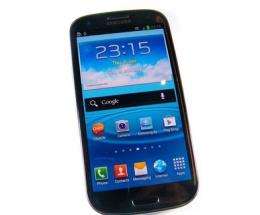July 1, 2012 report
UK study: Calls place modest fifth in phone time use

(Phys.org) -- Remember when a phone used to be a phone? Not a camera, restaurant finder, music player, social networking check-in, or mini game diversion? A new survey makes it official. Engaging in phone calls has fallen down into the Etcetera of features use category. According to a study of 2,000 smartphone users, the time spent talking on phone is just 12 minutes a day, out of the two hours a day spent using the phones. According to O2’s “All About You” report from the UK, just browsing the Internet is the most frequent activity on smartphones, accounting for 25 minutes a day. Checking and updating social networking sites such as Facebook and Twitter consume 17 minutes against the frailer 12 minutes to talk in a phone call.
Among the usage and time breakdowns featured in the report: Smartphone users browsing the Internet (25 minutes a day), social networking (17 minutes), listening to music (16 minutes), playing games (13 minutes), and e-mail (11 minutes). Other activities that the survey timed were reading books, watching videos, and taking pictures, all for a total of 128 minutes.
The “All About You” report announced Friday from mobile provider O2, which is the commercial brand of Telefónica UK Limited, was commissioned by O2 to mark the launch of the Samsung Galaxy SIII.
David Johnson, General Manager Devices for O2 in the UK, said, “Smartphones are now being used like a digital ‘Swiss Army Knife’ replacing possessions like watches, cameras, books and even laptops.” He said the phone now plays a far greater role in all aspects of daily life. More than half, 54 percent, are using their phones instead of alarm clocks; 46 percent have stopped wearing a watch in favor of the smart phone; 39% percent have switched from using a standalone camera to using the smartphone; and more than a quarter use their phone instead of a laptop.
The findings conveniently prop the new Samsung Galaxy SIII, which is rich in “next generation” functions. The phone provides S Voice,’ described as an advanced natural language user interface, to listen and respond to the user’s words, and carries eye-tracking such that the screen remains bright if the user is looking at it.
While the survey findings of how the smartphone is used may not surprise most people, there are a few points of interest in the study as to how much more far-reaching the Swizz Army Knife of mobile devices may become, notwithstanding the expected leveling off of smartphone sales. One in twenty smartphone users have switched to use their phone in place of a TV (six percent) or reading physical books (six percent).
More information:
Press release
© 2012 Phys.Org



















